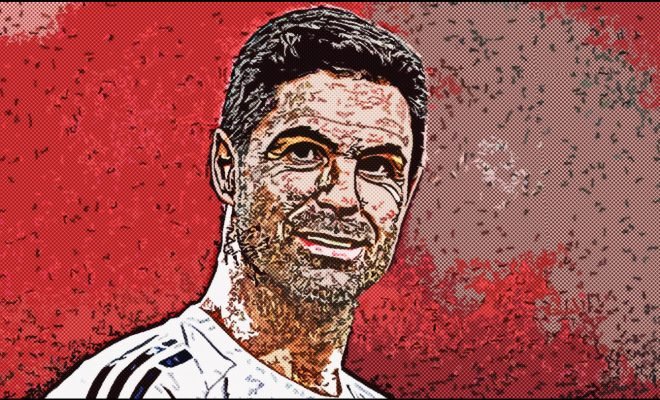Does Arteta Have to Win Something This Season?

By now, Arsenal fans are familiar with the Mikel Arteta project. Nearly five years in, it has become more than just a long-term rebuild. It’s a campaign of belief, near-misses, and steady progress. The Spaniard has brought Arsenal back to the top table of English football. He’s re-established the club as a Premier League force, pushed Manchester City and Liverpool harder than anyone in recent memory, and restored pride at the Emirates. But for all the plaudits and potential, one thing remains elusive: silverware.
Now, after the most aggressive summer of Arteta’s tenure and recent Arsenal history, the question needs to be asked more seriously than ever, does he have to win something this season?
A Summer of Intent
There’s no doubt about it: this summer has been a statement. After a season in which injuries crippled Arsenal’s title run-in and European ambitions, Arteta made it clear publicly and privately that the next step required more depth, more quality, and fewer compromises.
As early as April, he framed the summer window as critical:
“Every summer is big because it is an opportunity,” he said. “But it’s a big summer for many things, because first of all we have to maintain the good foundations that we have, and then obviously how can we improve and evolve the team.”
The board responded. Kepa Arrizabalaga arrived from Chelsea to offer veteran backup assurance in goal. Martin Zubimendi was brought in to anchor midfield, effectively replacing Thomas Partey. Noni Madueke, still just 22, joined to offer real depth and unpredictability behind Bukayo Saka and cover on the left. Cristhian Mosquera adds height, pace, and composure to the already deep and formidable backline. Christian Nørgaard was signed to provide a more defensively reliable backup in the midfield 6 role than Jorginho. And most significantly, a genuine No. 9 – Viktor Gyökeres, was added to solve a long-standing issue up front.
Credible links to Eberechi Eze remain active, and if that deal comes through, Arsenal would boast one of the most complete squads in Europe.
More importantly, this is no longer a squad of young talents trying to keep up. This is now a 25-man group where nearly every player is either a starter or close to it, exactly what Arteta has been pushing for.
The Injury Alibi — Last Season’s Brutal Toll
Much of last season’s “failure,” if second place in the Premier League and a Champions League semifinal loss to PSG can be called that, was rooted in injuries. The squad was stretched far too thin, too early. Martin Ødegaard, the heartbeat of the team, missed over three months. Saka, Havertz, and Gabriel Magalhães were all out for extended periods. Gabriel Jesus suffered another major setback with his ACL injury in February and hasn’t played since. New arrivals like Jurrien Timber and Riccardo Calafiori had stop-start seasons. Tomiyasu was never really available.
Arteta recently revealed just how threadbare the squad was behind the scenes:
“Last year the lineup was done: ‘Give me five players who can finish 90 minutes.’ Those five? Ok, those I have to play.”
That context matters. The thin squad couldn’t keep up physically. The title slipped as options dwindled over the season. In Europe, when PSG raised the intensity, Arsenal didn’t have the legs or the players to respond.
Now There Are No Excuses
But that context has changed. Arsenal, in 2025, no longer has a young and overachieving squad playing with house money. This is a title-challenging, cup-contending, Champions League-aspiring team built with intention and investment. The club has spent like a contender and planned like one too.
Arteta’s vision has shifted away from static tiers of starters and backups toward a more fluid model:
“We want to build a team, like other clubs already have, where you look at the squad and you cannot really identify who is going to play tomorrow.”
That’s a far cry from the limitations he described last season, where injuries determined the lineup more than tactics did. With depth across all lines of the pitch and a clear tactical identity, Arsenal now has the tools to rotate, adapt, and survive the season’s most brutal stretches.
So, yes, expectations have changed. The time for symbolic progress has passed.
What Would Count as Success?
The reality of modern football, especially in England, is that winning even a single trophy is incredibly difficult. The Premier League has the greatest depth of elite teams in Europe, and the Champions League knockout stage is ruthless. Yet, with this squad, it’s fair to expect something more than another “honourable” campaign.
That doesn’t mean Arteta needs to win the Premier League or Champions League this season or risk losing his job. But the club does need to lift silverware. A domestic cup double, FA Cup and Carabao Cup; with this squad, is within the realm of possibility.
Even one of those trophies, paired with another deep league run and progress in Europe, would represent growth. But a season with no trophies again, no matter how close they come, will open up fair criticism. At some point, potential has to turn into tangible results. No one wants to see Arsenal become the modern version of Pochettino’s Spurs, always there, always in the conversation, but never quite over the line.
Conclusion
Mikel Arteta has done a brilliant job reshaping Arsenal’s identity. He’s brought structure, clarity, ambition, and emotional intensity back to a club that had lost its edge. But after this summer’s investment and the new reality of squad depth, Arsenal has crossed a line.
They are no longer building. They are competing. And with that shift comes a new level of scrutiny.
Arteta doesn’t have to win the Premier League or Champions League this year. But he does need to win something. The ownership has backed him. The fans believe in the project. The squad is ready. Now, it’s about turning years of momentum into something you can actually put in a cabinet.
Because sooner or later, progress has to come with medals.

